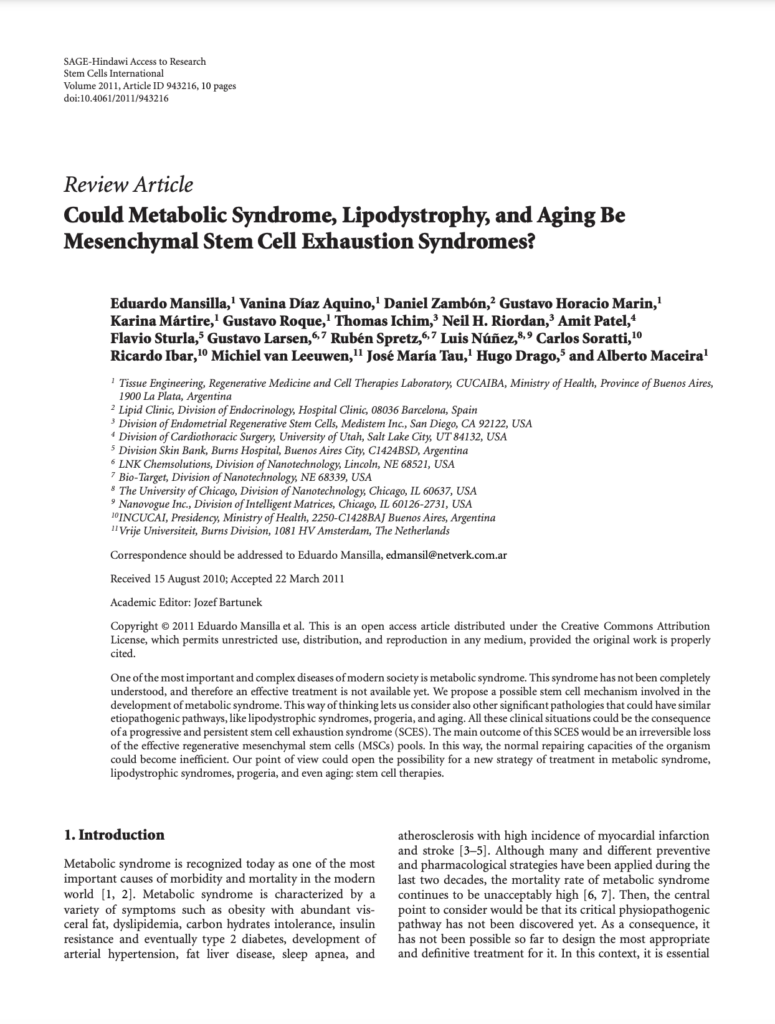June 2011
Could metabolic syndrome, lipodystrophy, and aging be mesenchymal stem cell exhaustion syndromes?
Journal Citation
Stem Cells Int. 2011;2011:943216
Authors
Mansilla E, Díaz Aquino V, Zambón D, Marin GH, Mártire K, Roque G, Ichim T, Riordan NH, Patel A, Sturla F, Larsen G, Spretz R, Núñez L, Soratti C, Ibar R, van Leeuwen M, Tau JM, Drago H, Maceira A.
Abstract
One of the most important and complex diseases of modern society is metabolic syndrome. This syndrome has not been completely understood, and therefore an effective treatment is not available yet. We propose a possible stem cell mechanism involved in the development of metabolic syndrome. This way of thinking lets us consider also other significant pathologies that could have similar etiopathogenic pathways, like lipodystrophic syndromes, progeria, and aging. All these clinical situations could be the consequence of a progressive and persistent stem cell exhaustion syndrome (SCES). The main outcome of this SCES would be an irreversible loss of the effective regenerative mesenchymal stem cells (MSCs) pools. In this way, the normal repairing capacities of the organism could become inefficient. Our point of view could open the possibility for a new strategy of treatment in metabolic syndrome, lipodystrophic syndromes, progeria, and even aging: stem cell therapies.

